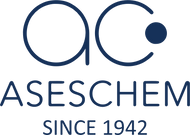
How to Choose the Right Lab Equipment for Your Research Needs
It is paramount to take into account the proper laboratory consumables able to carry scientific research, for accurate and reliable results. A good choice in selecting new laboratory equipment or upgrading a lab supply must ensure precision, efficiency, and safety. Therefore, options concerning lab supplies that impart success to the experiments must be weighed very carefully. Labware selection is by definition glassware, which needs to fulfil the specified research requirements and equipment specifications along with more sophisticated approaches for those purposes.
Knowing Your Research
Knowing the requirements of their specific research while buying any lab equipment is paramount: Different requirements demand different tools, which may end up yielding wrong results if inappropriate equipment is chosen. Chemistry laboratories need lab glassware, such as beakers and flasks, while biological research more commonly requires centrifuges and incubators. This helps narrow down your other laboratory supplies for your research, considering economic considerations as well. So, it further extends the discussion whether to get it new or used-for trade-considered under a longer list of factors such as availability, financial capability, and definitions of tolerable accuracy.
Points to Consider when Choosing Laboratory Equipment
Precision and accuracy in lab equipment should be given priority above all else. Such lab instruments-conductivity meters, Soxhlet extraction units, must closely come to yielding similar results for the validation of research. The durability of laboratory consumables is another important criterion, with laboratory glassware, quite often used in laboratories, worthy of mention, that has to be made out of quality materials-the borosilicate glass. Considerations for maintenance and usability of equipment and important compatibility with an existing lab setup would affect a smooth workflow, and thus, also be considered. Other salient factors are safety and compliance with the current regulations and specifications, for that would mean much in the way of hazard avoidance and a safe working environment.
Laboratory Supplies that Every Researcher Should Have
Aseschem supplies a complete range of laboratory supplies for varied scientific applications. General lab equipment consists of a magnetic stirrer which ensures a homogeneous mix of solutions as well as heating plates for predetermined heating of chemical reactions. Conductivity meters evaluate and determine effluent liquid conductivities since they play a critical role in research and experimental work in many branches of chemistry and environmental science. Soxhlet extraction units are mainly a large component of the extractive apparatus for the extraction of compounds from material solids; centrifuges serve as irreplaceable tools for the medical and biological laboratory, separating matter according to density. Certainly, the better the lab equipment, the better it would help in giving better results in the scientific research in terms of efficiency and accuracy.
Safety and Regulation Compliance
Laboratory equipment should be also made to confirm to safety and regulatory standards in the relevant industry. Following these will help to ensure a safe research environment. Make sure you track certifications and manufacturer instructions for all laboratory supplies before you buy. Minimize hazard potentials through correct handling procedures in specialized instrument use. Regular calibration and maintenance of lab supplies extend their useful life to accurate functioning. Altogether, choosing laboratory supplies based on compliance and maintenance provides researchers with reduced opportunities for errors and better reliability of the experiments.
Conclusion
Selection of proper used laboratory equipment is the foundation for all precise and reliable research results. This knowledge of specific research requirements, along with the choice of good laboratory supplies and safety regulations, forms a critical part of the selection process. Aseschem offers laboratory equipment like stirrers and hot plates, conductivity meters, Soxhlet extraction units, and centrifuges, which can be utilized in any scientific field. Such basic equipment will dramatically enhance the performance of scientists in terms of efficiency, accuracy, and general laboratory output, thus opening up new horizons for discoveries and innovations.
FAQs
1. What factors should I consider when selecting lab equipment for my research?
Consider accuracy, durability, simplicity, compatibility with your research needs, safety, and regulatory standards.
2. How do I determine if a piece of lab equipment is suitable for my specific experiment?
You consider specifications of the equipment, its applications in your field of research, especially when it meets specification such as accuracy and performance.
3. What are the most important features to look for in lab equipment for accurate and reliable results?
Accuracy and reliability include specifications like: accuracy/precision parameters, stable operational parameters, materials of construction, automation features, and compliance with standards and regulations.
4. How can I ensure that the lab equipment I choose meets safety and regulatory standards?
Check for certifications, manufacturer instructions, and assurance of the ability to safely operate in a laboratory.
